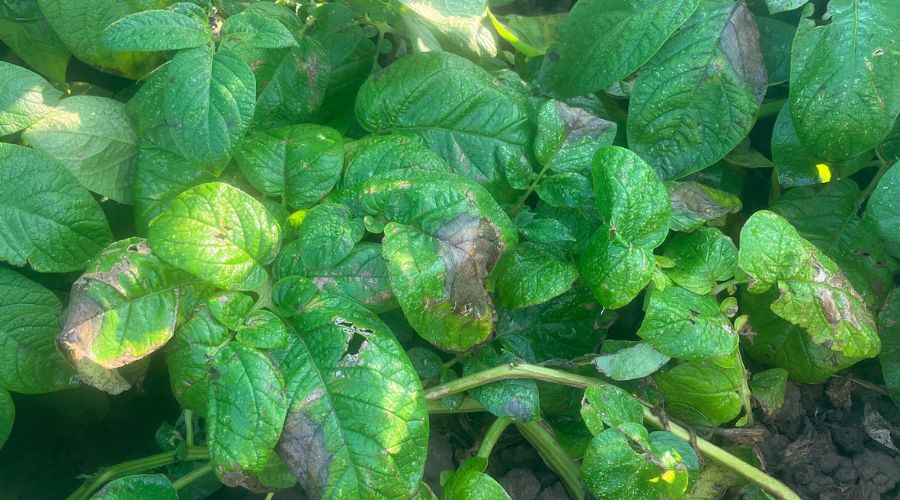Biostimulants boost blight threatened potatoes
24th December 2024
Trials carried out by Orion Future Technologies, working with Hutchinsons and Richard Austin Agriculture, have revealed how the application of silicon biostimulants can have a positive effect on potato yields and improve the plant’s natural defence to late blight.

Orion’s R&D agronomist, Kate Williams, explained that in an independent trial, the yield of a Melody crop increased by 18%.
This was achieved by adding two biostimulants, Sirius and Pluton, at a concentration of 0.5 litres per hectare to the standard tank mix across eight applications.
A separate trial sought to understand the impact of using biostimulants as a way to strengthen potato plants to better withstand late blight. This trial used Sirius, a silicon-based biostimulant, with Trident, a micronutrient product.
She added: “Trident is a copper and zinc formulation that stimulates plant health and helps to protect against common stresses. In the trial, a concentration of 3 litres per hectare of Trident was combined with a 0.5 litre per hectare concentration of Sirius every week for 12 weeks.”
Strengthening plant’s natural defences
The outcome of the additional micronutrient and silicon boost meant only 18% of the crop was affected by blight compared to 20% with the standard tank mix. The control sample crop succumbed entirely, with 100% of the crop affected by blight, showing the devastating threat blight poses to potato crops.
Ms Williams added: “Silicon helps to strengthen a plant’s natural defences and also helps it to take up more nutrients. This is why using a silicon biostimulant in addition to copper and zinc has helped the treated sample to stand up to blight.”

The two trials demonstrate how a plant-first approach can be beneficial to improving both yield and resilience. With rising costs, environmental instability and pressure to deliver high-quality potatoes, the addition of new, biological and sustainable products, such as these biostimulants, is being seen as an opportunity to help growers.
“Bringing new products that focus on strengthening plants natural defences to complement existing strategies has provided encouraging results. To increase yield is always a goal, but to do so with the added benefit of helping crops manage environmental and disease stresses is an important breakthrough,” she concluded.
Read more arable news.
